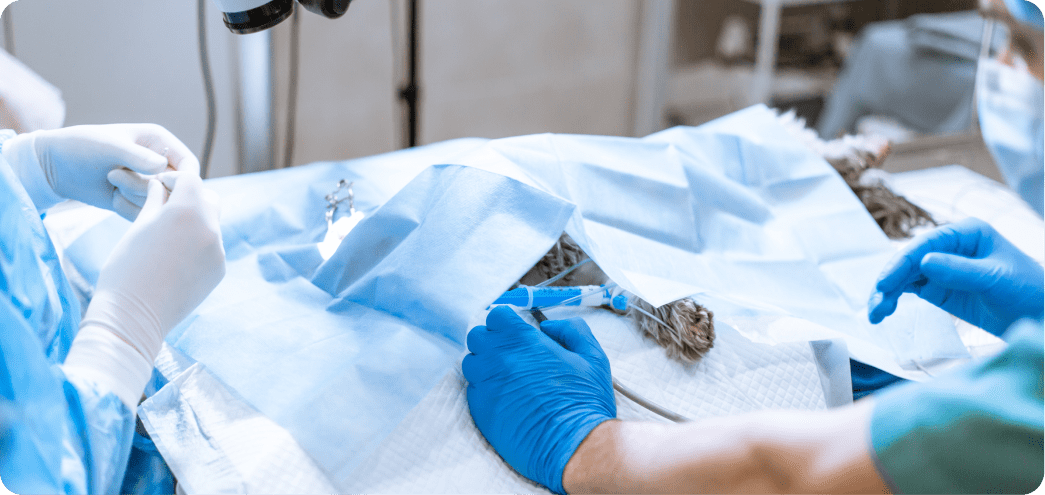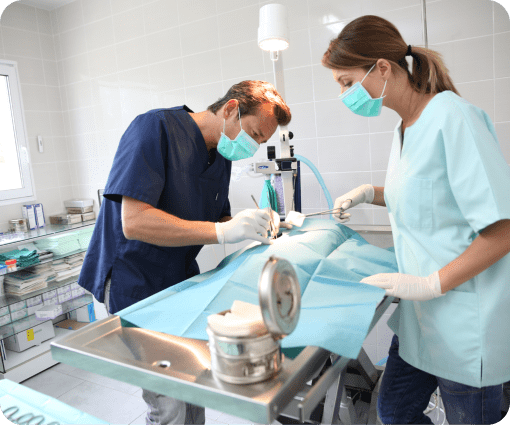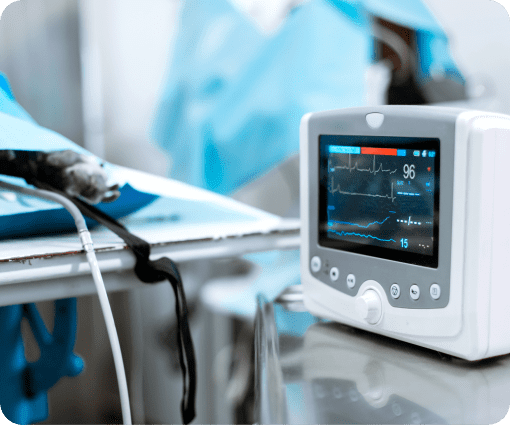

The best for your pet.
There is a time in almost every pet's life when they need some type of surgery. Whether the surgery is neutering, spaying, or exploratory surgery, the process can be stressful and overwhelming for both you and your pet. If you reside in the St. Johns area and your pet has an upcoming surgery, it's essential to be prepared. Here are a few tips to help you prepare for your pet's surgery.
One of the most important things to do before as well as after surgery is to keep your pet calm. If your pet experiences separation anxiety or another form of anxiety disorder, your veterinarian is most likely already aware of this and is available to discuss the best way to keep your pet calm before and after a visit to the vet. This discussion is critical to allow for you to voice questions and concerns about pet surgery with one of our veterinarians at St. John's AAH.
Get in Touch

Most surgeries for our dogs and cats require full anesthesia to ensure the procedure is performed safely. The amount of medications for anesthesia, like all medication administration for pets, depends on a few different factors. These are your pet's weight, overall health, and the length and difficulty of the surgery.
Some animals may experience side effects from anesthesia during and/or after the procedure. At St. John's AAH, we take all necessary steps to ensure your pet has the least amount of side effects and the least amount of risk! We perform pre-anesthetic blood work on all anesthetic procedures, continually and closely monitor pets before, during, and after surgical procedures, place an IV catheter for fluid administration, and intubate your pet to control their breathing.
It's important to talk with your vet about the possible side effects and risks of any surgical procedure before, during, and after surgery. Your pet should not be given any food or treats the night prior to the surgery to help decrease the likelihood of asphyxiation following the surgery. Unfortunately, some animals may still get gastric reflux while under anesthesia or following anesthesia, but the risk is smaller when their stomach is empty. Your pet may be more tired than usual and may not want to eat the night of the surgery; this is normal. Typically, our pets are back to themselves the morning after surgery!
Some side effects that may last a few days after the surgery are coughing (from the endotracheal tube) and not defecating (pooping) for a couple of days. Anesthesia and associated medications slow down the GI tract, which is why your pet may not poop right after surgery. Your pet should NEVER experience vomiting or diarrhea after surgery. If this occurs, you must call us right away so we can determine if your pet needs to be seen by the doctor to make sure nothing else is going on, like a side effect of the pain medications.
Following surgery, your pet will likely be discharged a few hours later. It's essential that you plan ahead to ensure they will be comfortable after arriving home, including understanding what to do for pain control. It's routine for pets to receive pain medication following surgery, and our staff at St. John's AAH will go over all medications with you at the discharge point, including what each medication is for, when to give each medication, and how much to give of each medication. In addition, our staff will also discuss the potential side effects of each medication with you.
Be sure to ask questions to clarify anything that may be confusing or any questions you still have. Proper medication administration following surgery is an essential part of pain control, as well as providing a clean, soft bed or area for your pet to rest in post-surgery. Prevent other pets and children from disturbing your pet, especially for the first few hours after they return home. If your pet appears to be in pain even after receiving their pain medications, contact us right away to find out if there is anything else that can be done to help relieve the pain.
Before leaving the vet's office, you will be given detailed instructions about how to care for your pet after their surgery. These instructions will provide information about medications, cleaning and dressing the surgical site, when feeding can begin and how to identify potential infections. Your pet's activity will likely be restricted for at least two weeks following surgery. This includes running, jumping, and any playtime. Your pet should not be bathed and should wear an e-collar at all times, until your post-surgical recheck when your veterinarian gives you the “all clear”!
If you have any questions or concerns about pet surgery, don't hesitate to give us a call to discuss! We are open seven days a week with extended hours to be available for you when you need it!
Hit the Get In Touch With Us button below and fill out the form so we can properly connect you with a team member who can help. Prefer speaking with a human to filling out a form? Call our corporate office at the phone number listed below.